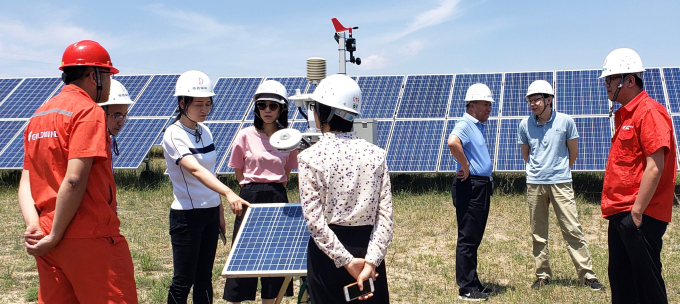
Photo courtesy of Beijing Chaoyang District Yongxu Global Environmental Institute.

Photo courtesy of Beijing Chaoyang District Yongxu Global Environmental Institute.
GEI analyzes policy development and business models for solar energy projects in China's Shanxi Province.
China has registered extraordinary progress since it launched an era of reform and opening 40 years ago, including the elevation of hundreds of millions of people out of extreme poverty and the growth of China’s economy into the second largest in the world. This rapid economic development, however, has been accompanied by severe environmental degradation with adverse human and economic impacts, as well as significant threats associated with climate change. The Chinese government and people have been responding vigorously. In recent years, as the country expanded its environmental regulatory and management capacity, significant progress has been made in reducing pollution and greenhouse gas emissions.
In 2020, China set climate targets to peak emissions before 2030 and become carbon-neutral by 2060—goals that have immense domestic and global significance. China’s focus on green technology and renewable energy is already transforming its economy, and its investments in renewable energy and electric vehicles are shaping global markets. As a major producer and consumer, China’s choices influence the direction of technological development. Its decisions about international investments also have climate change implications: it is reconfiguring its overseas investment strategies to be more sustainable. Accordingly, in 2021, the Chinese government halted financing and construction of new coal-fired power plants worldwide. China’s active participation in global climate and environment negotiations is crucial for building international consensus and achieving meaningful progress in the fight against climate change.
These developments point to a transformative moment in China’s environmental and climate policymaking and governance. As the Chinese government and people take consequential steps to address environmental pollution, climate change, and their impact on human communities and ecological health in an increasingly integrated way, both domestically and internationally, the Rockefeller Brothers Fund assists by engaging with and fostering collaborations among government, business, civil society, and academia. The Fund encourages solutions that take into account social, economic, and cultural considerations and emphasizes capacity building across all sectors.
The RBF established its China-focused grantmaking program in 2005. From its inception, the RBF’s work in China has been driven by a fundamental belief in the wisdom, creativity, and resourcefulness of the Chinese people. The current program builds on the Fund’s history of philanthropy in East and Southeast Asia and continues more than a century of Rockefeller family philanthropy in China, which includes the founding of the Peking Union Medical College in 1917.
Program Director
Beijing Executive Office Manager
The Rockefeller Brothers Fund is a registered charity in China with a representative office in Beijing. The China program prioritizes grant funding for Chinese institutions and organizations working on the ground in China. Read more about What We Fund.